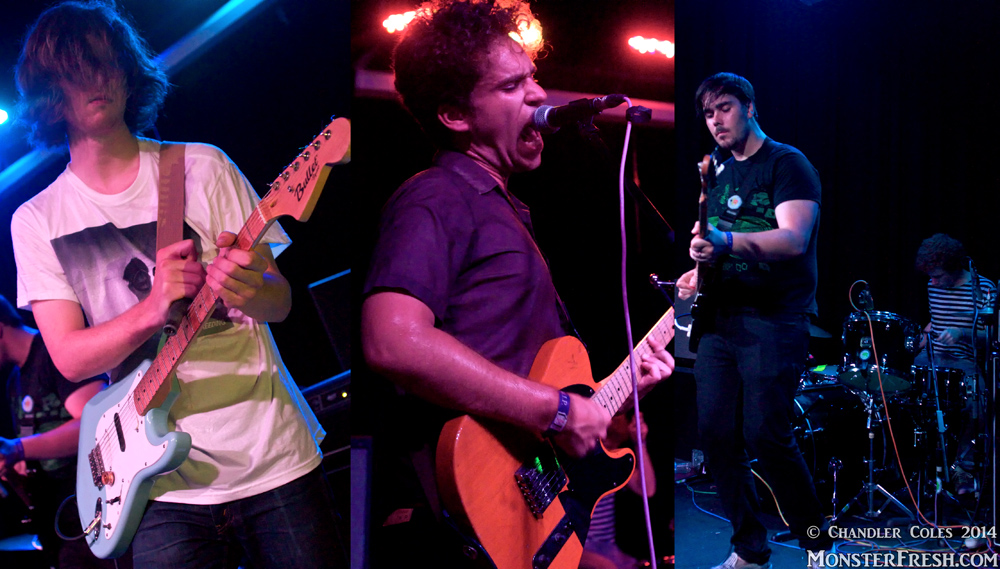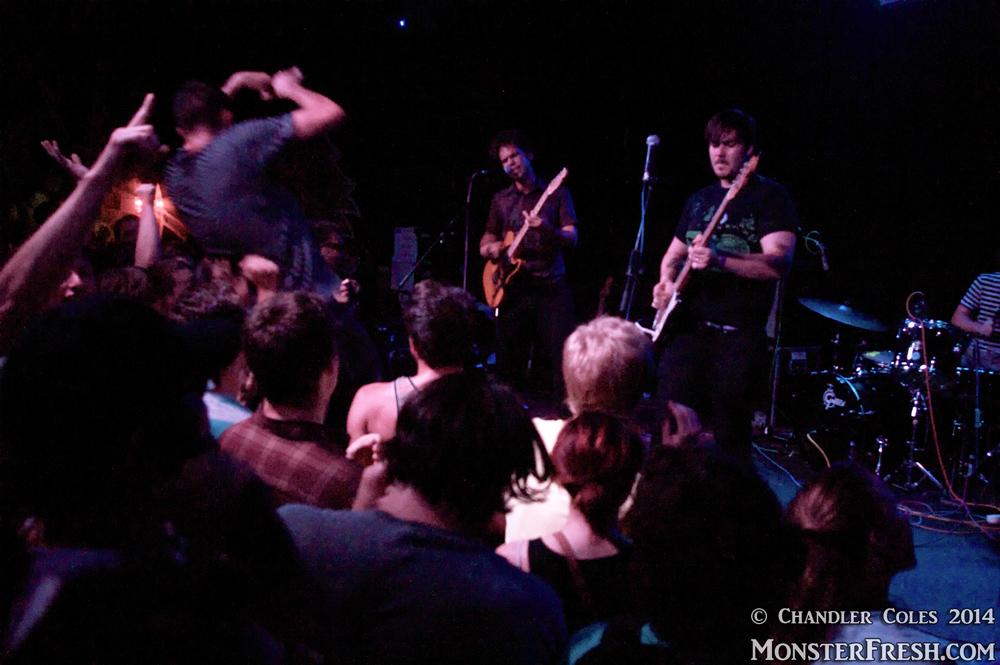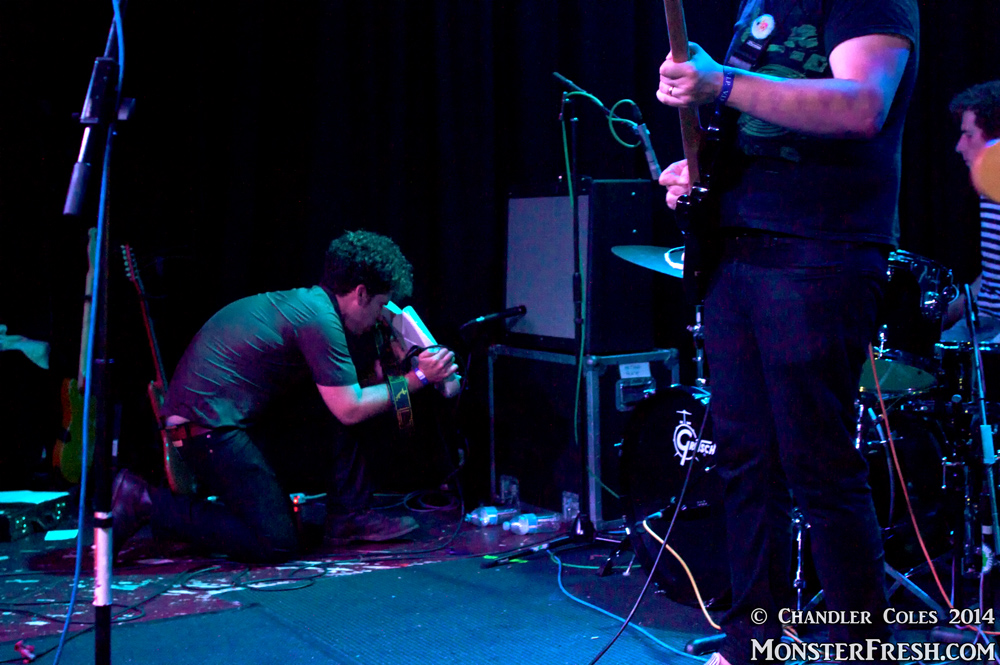Ducking And Dodging: Parquet Courts Live @ The Vera Project [Seattle]
The critically acclaimed Brooklyn 4-piece brings their high energy live act to the Seattle’s 350-capacity all ages venue, The Vera Project

Parquet Courts
The Vera Project
Seattle, Wa
8.05.2014
When the young Brooklyn outfit, Parquet Courts, took the stage, they did not acknowledge the crowd with more than a glance, nor were they in any rush to pick up their instruments and begin. The relaxed entrance soon turned into an excellent start, as the group opened with “Ducking and Dodging,” from their June release, Sunbathing Animal. They thumped along a stripped-down rhythm, while singer/guitarist Andrew Savage drifted through stream of consciousness verses, between the noisy title refrains. With lines like, “all my friends are disappearing / all my letters are in codes / all I ever think and feel / in your shadow it erodes,” poetic class punctuates the straightforward song structure. Watching the whole band, and especially Savage, switch from long-winded musings over constant chug, to a blurb of straight classic punk, brought the crowd jumping into the song. The track’s twangy guitar solo and its nervous delivery would prove both staples of the show and Parquet Courts’ sound in general.
Immediately following that first song was a long pause for a string change. The band was anything but rushed, and no other guitar was around to use as a replacement. To pass the time, guitarist/second vocalist, Austin Brown told deadpan jokes about haircuts. He was actually pretty witty and, before opening band, Naomi Punk, finally brought out a freshly tuned guitar, par the bands request, we had already been pondering his ideas of one scissor-blade haircuts (you could refer to your barber as being on the “ones and twos”).
It was amazing how fast I was sucked back into the show and their second song, following such a long break. All the while, blank-faced bassist, Sean Yeaton contrasted the lively delivery of Andrew Savage, providing tidiness to the sometimes, stoned clutter of the guitar and vocals. Andrew‘s younger brother Max rounded out the unassuming rhythm section with an on-stage presence of feel-good purity.

Since the lo-fi, cassette-only 2011 release, American Specialties, the group’s range and quirk have been evident, with them singing fast-paced punk numbers like “Food Stamp Office;” rockabilly-tinged songs like, “Mezzanine;” and the genius finale, “Tidal Hiss,” which features guitar just melodic enough to not be considered noise, zig-zagging along with crooning vocals and acoustic piano. Their follow-up, the break-out release, Light Up Gold, embodied an instant classic feel, and evidenced their Texas roots a little more than American Specialties. The most recent release, Sunbathing Animal is far more complex than the previous two, in my opinion, with many subtle changes in style and tone, yet manicured into a definite moment in time, or unified thought. What would that thought be?
Throughout the show, they reminded me of classic punk and post-punk bands, yet remained singular enough to achieve a signature sound. On “Dear Remona,” they sound like The Modern Lovers, dissecting an intangible women’s demeanor, and even punctuating lines with awkward un-rhymed endings, a la Jonathan Richman. On “Vienna II,” they sound like a mix between Wire and Gang of Four employing call-and-response vocals with ambiguous connections, some spoken and not sung, over a spiraling, awkward guitar part with a speedy tempo, and a get in/get out start and finish. “Bodies” starts off with a Television-esque guitar part and melds into something akin to Pavement in their more detached states.

Many of the songs that they performed differed from the album versions and were extended with supplementary guitar parts, solos, or noise jams. This, I find, when pulled of successfully, to be a sign of a good live set. The quartet ended with a destructive finale. Sean Yeaton began to beat his bass with his fist, whilst Austin Brown proceeded to rip his microphone from its stand and rub it viciously against the guitar strings. Andrew then held his guitar up to the speaker, over his head, while on his knees, as though he were making an offering to the gods of ambivalence. They stepped off the stage, as I stated out loud that there couldn’t be an encore. A show without even a possibility of an encore struck me as a new and interesting thought; the range of ideas and musical influences that flowed through the evening left nothing more to be desired and evaded superfluousness.